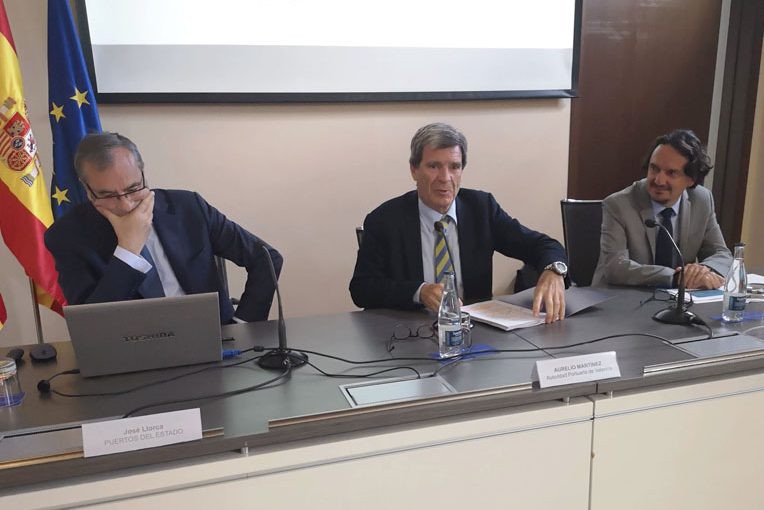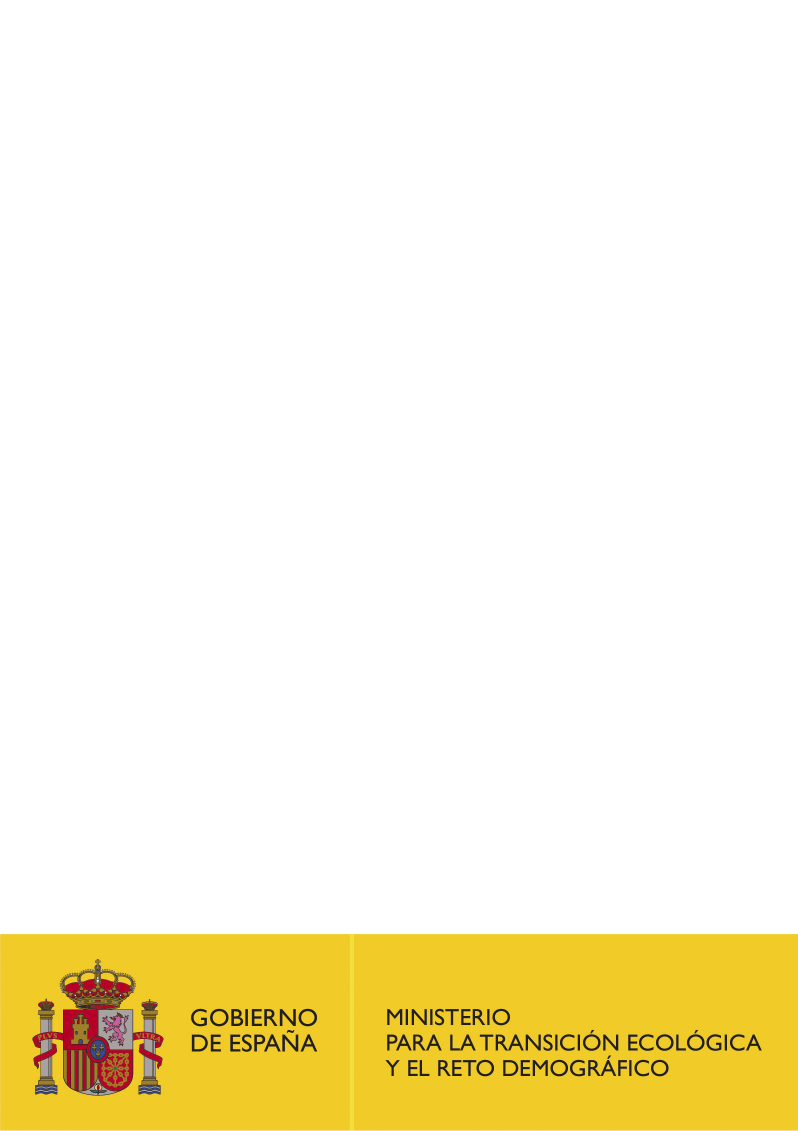- A Valencian company will be in charge of forming the management office and developing the corporate incubator for the sector.
- The fund will encourage the creation of new companies or new business lines in existing companies that develop innovative products, services or processes for the logistics-port sector.
Valencia, 8 April 2019.- Valenciaport today hosted the presentation of the Ports 4.0 Fund, a new inter-port compensation fund aimed at promoting and actively incorporating disruptive innovation as an element of competitiveness in the Spanish logistics-port sector, both public and private. The event, which took place in the Clock Building of the Port of Valencia, was attended by Aurelio Martínez, President of the Port Authority of Valencia (APV); José Llorca, head of the “Ports 4.0” capital fund of Puertos del Estado; and Antonio Torregrosa, General Director of the Valenciaport Foundation.
During the presentation, Aurelio Martínez highlighted the importance of coordinating the entire innovative cluster generated by the logistics-port sector. “Some ports in the most advanced countries in the world, such as Rotterdam or Singapore, have come to play an important role in innovation and research processes on a global scale. In the case of Rotterdam, it has focused its innovative process on two aspects, the reduction of CO2 emissions and the promotion of sustainability throughout its port cluster”. Martínez also stressed the need to boost R&D in our country “according to data from The Global Innovation Index 2017 report, Spain devoted 1.2% of GDP to R&D activities in 2015, which placed it in 30th place in the world ranking. However, if we analyze the data on patents, in that same year, Spain requested the registration of 3,020 patents, representing 0.10% of all patents in the world”.
Ports 4.0 Fund
During the presentation, José Llorca highlighted the “role played by the President of the Port Authority of Valencia, Aurelio Martínez, in promoting the creation by Puertos del Estado of this new Ports 4.0 fund which is part of the inter-port compensation fund”. This new fund, created in March 2018, is endowed with around 25 million euros. This amount corresponds to 1% of the annual recurrent cash flow of each port authority and a minimum contribution period of 4 years is established. To activate this fund, the support office and the creation of the corporate incubator or accelerator have already been awarded to a joint venture formed by KPMG and Insomnia, the Valencian innovation hub. This joint venture will have a presence in 12 ports of general interest in the country.
The “Ports 4.0” fund is aimed at financing any phase of the innovation process: from the ideation, to the validation, acceleration or growth of the project. This new fund aims to encourage the creation or consolidation of a network of emerging companies or new business lines in existing companies that develop innovative products, services or processes for the logistics-port sector, with a clear vocation to the market. Likewise, it seeks to put innovative products, services and processes at the service of the Spanish port community, promoting the development of prototypes, pilots and the practical application of innovation strategies, with the clear objective of promoting adaptation and facilitating the transition of the logistics-port sector to the 4.0 economy.
The first call of this Ports 4.0 fund is expected to be launched next July. The projects eligible for contributions from this fund must be related to areas such as: logistics efficiency in the infrastructure, operational or service provision areas; environmental sustainability and energy; safety and security; or digital transformation of processes and services (intelligent platforms).
The economic allocations that the Ports 4.0 fund will make depend on the state of the project. Specifically, ideas or start-ups that are in the initial or emerging phase may have a fixed economic endowment of 15,000 euros. On the other hand, the projects or start-ups that are in the development phase will be able to have an economic endowment that will oscillate between a minimum of 50,000 euros and a maximum that will be the smaller value between 60% of the costs of the innovative component or a million euros. Finally, the innovative product in the phase of scaling or commercialization will be able to have access to a minimum economic endowment of 100,000 euros and the maximum will oscillate between the minor value of 80% of the costs of the innovative component or 2 million euros.
Innovation Plan for the Valenciaport Cluster
The event ended with a presentation of the Innovation Plan for the Valenciaport Cluster, drawn up by the Valenciaport Foundation. According to Antonio Torregrosa, general director of the Valenciaport Foundation “if we want the port of Valencia to consolidate its position and continue to move forward, the solution lies in innovation. That is why we have been working on this plan during the last semester of 2018, in collaboration with the APV and the Valencian Agency for Innovation”. “This plan – has continued – has allowed us to identify a battery of trends that we have grouped into five categories: digitalization, automation and robotization, sustainability, security and protection, and business models”.
Among the main innovations detected in this plan, the following stand out in terms of digitalization and automation: the network of environmental sensors for measuring air quality and GHG emissions, the prediction and management of maritime accesses, the prediction of congestion at accesses or the automation of terminals and vehicles, among others. In the area of energy and environment, aspects such as the evolution towards a low-emission operating model, the measurement and communication of the environmental footprint in products and services offered by the logistics-port cluster or environmental and commercial subsidies have been detected. In the area of security and protection, practices such as the implementation of industry 4.0 technologies applied to protection models, the application of drones or the development of cyber-security models have been detected. Finally, in the section on business models, the innovation plan has established practices such as global digital platforms, intelligent aggregation of logistics demand to eliminate inefficiencies or the development of circular economy models.


